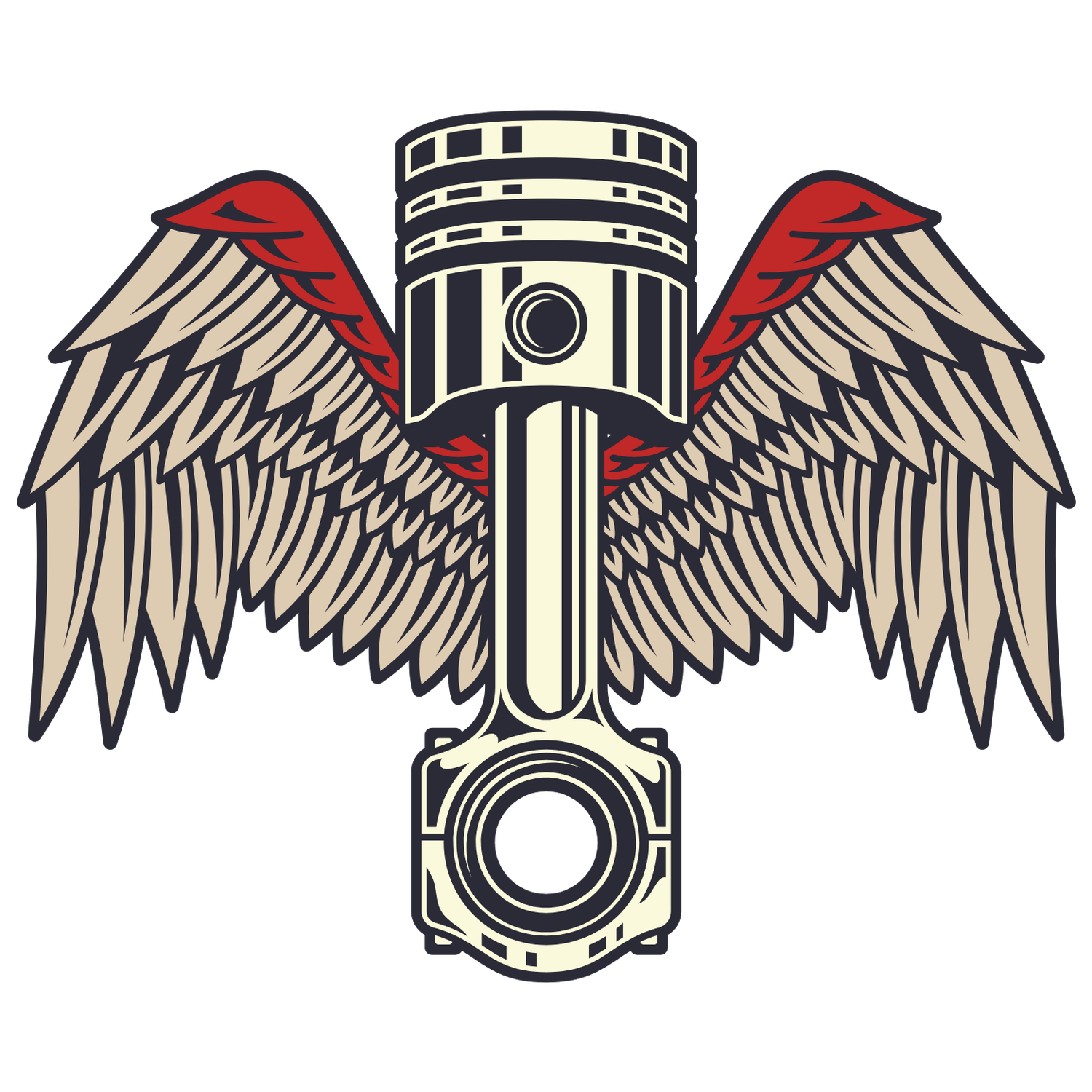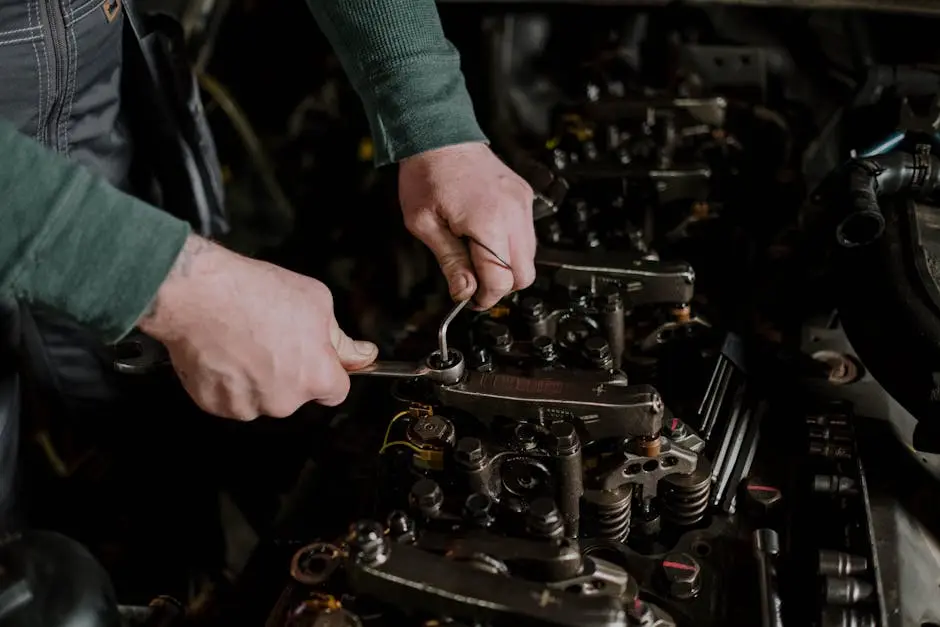10 Essential Vtech Tips for Maintaining Engine Components
Maintaining your engine components can feel overwhelming, but with Vtech, it doesn't have to be. In this guide, we'll share essential tips that simplify the process and ensure your engine runs smoothly. Let’s dive in and keep your engine in top shape!
1. Understanding Vtech Technology
Before diving into maintenance tips, it's essential to understand what Vtech technology is and how it impacts engine performance. Vtech, short for Variable Valve Timing and Lift Electronic Control, optimizes the performance of your vehicle by adjusting the timing of the engine's valves. This means your engine can operate efficiently at both low and high RPMs. Understanding this technology is critical because it influences how you approach maintenance.
Moreover, recognizing the role of Vtech can empower you to make informed decisions about your vehicle. For instance, if you've equipped your engine with Vtech technology, simple maintenance practices can lead to significant improvements in power and fuel efficiency. Signature components, such as the Vtech solenoid, play a vital role in this dynamic. Hence, knowing how these elements function will help you stay ahead of potential issues.
2. Regular Oil Changes
Keep your engine components well-lubricated by adhering to a strict oil change schedule. Fresh oil helps in reducing buildup and wear, ensuring your engine runs smoothly over time. Think of oil as the lifeblood of your engine—without it, your vehicle can suffer severe damage. The frequency of oil changes may depend on your driving habits, but a good rule of thumb is every 3,000 to 5,000 miles.
In addition to regular changes, consider using high-quality Vtech-approved oil for best results. These oils are specifically designed to work with Vtech components, maintaining optimal engine performance. This proactive step can prevent costly repairs down the line and keep your vehicle's engine functioning seamlessly.
3. Keeping the Air Filter Clean
A clean air filter ensures optimal airflow. Check and replace it regularly to improve engine efficiency and longevity. Just like our lungs need clean air, your engine needs unrestricted airflow to perform at its best. The air filter traps dirt and debris, but if it becomes clogged, it can restrict airflow, which negatively impacts engine performance. Make it a habit to inspect the filter every few months.
Additionally, consider using a high-flow air filter, especially if you want to enhance performance further. These filters can increase the amount of air entering the combustion chamber, which can lead to improved throttle response and boost engine power. Ultimately, a clean air filter is a small step that can yield significant benefits.
4. Monitoring Fluid Levels
Regularly check coolant, brake fluid, and other essential fluids to maintain performance and prevent engine overheating. The importance of monitoring fluid levels cannot be overstated; these fluids work in unison to ensure all engine systems operate optimally. For example, low coolant levels can lead to overheating, which can severely damage your engine.
Alongside regular checks, using high-quality liquids designed for your vehicle can make a noticeable difference in performance. For instance, always use the recommended brake fluid for your vehicle model, as this ensures proper braking control, which is crucial for safety. Keeping these fluids at their optimal levels not only enhances performance but also extends the lifespan of your engine components.
5. Inspecting Belts and Hoses
Inspect belts and hoses for wear and tear. Replacing them in a timely manner can prevent breakdowns and costly repairs. Belts and hoses are critical components that can sometimes be overlooked, but they play a significant role in the function of your engine. A worn-out serpentine belt can lead to engine overheating or battery issues, while a cracked hose can result in coolant leaks.
It’s beneficial to visually inspect these components periodically and replace them based on your vehicle’s recommended service interval or sooner if you notice any signs of damage. A small crack or fraying can signal impending failure, and acting on these signs can save you from a breakdown—both inconvenient and expensive.
6. Understanding Your Engine’s Sounds
Pay attention to any unusual sounds from your engine. They can be early warning signs of issues that need immediate attention. Just as our body gives us signals when something is wrong, your engine does too. If you hear knocking, squealing, or hissing, it's crucial to investigate the cause. Sometimes, it can be something minor, but ignoring these sounds can lead to more severe problems.
Moreover, keeping a record of these sounds and their occurrences can help you describe the issues more clearly to a mechanic, facilitating quicker diagnostics and repairs. Being proactive in understanding your engine’s behavior fosters a more robust maintenance routine.
7. Utilizing Diagnostic Tools
Leverage Vtech diagnostic tools to get real-time insights into engine performance and detect issues before they escalate. These tools can scan for error codes, monitor engine conditions, and identify potential problems long before they become serious. Investing in a good diagnostic tool can empower you as a car owner, providing knowledge that can save both time and money.
By regularly using these tools, you will foster better vehicle knowledge and maintenance habits. Not only will this enhance your engine's performance, but you'll likely gain peace of mind knowing you are attuned to your vehicle's needs.
8. Keeping an Eye on Battery Health
A well-maintained battery is crucial for engine functionality. Regularly clean terminals and check connections. If your battery is corroded or connections are loose, it can disrupt power supply to essential components, leading to problematic starts or engine failure. Make a habit of inspecting your battery when checking other fluids, as it often goes unnoticed.
In addition to routine checks, if you notice your vehicle having trouble starting, it might be time for a battery test. Many auto shops offer free battery testing, which can provide crucial insights into whether your battery is on its last legs or just needs a good cleaning.
9. Scheduling Regular Tune-Ups
Periodic tune-ups can help catch potential issues early. Don’t skip these appointments—your engine will thank you! Regular tune-ups can include checking spark plugs, filters, and other vital components that keep your engine healthy. Think of this as a wellness check—catching those small issues can prevent them from blossoming into significant problems.
Incorporating this practice into your routine can lead to better fuel efficiency and overall performance. And, it means you’ll be driving a vehicle that’s running at its peak performance level, making every journey more enjoyable.
10. Using Quality Replacement Parts
When it’s time to replace parts, opt for high-quality Vtech components to ensure reliability and performance. Choosing quality over cost can mean the difference between a smooth engine performance and troublesome repairs down the line. High-quality parts are engineered for precision and durability, so investing in them will pay dividends in the longevity and efficiency of your vehicle.
Never compromise on quality just to save a few bucks. Remember, when it comes to your engine components, you're investing in your vehicle's health. Always consult your car’s manual for recommended brands and specifications before making replacements, as adhering to these guidelines will ensure everything works harmoniously.

